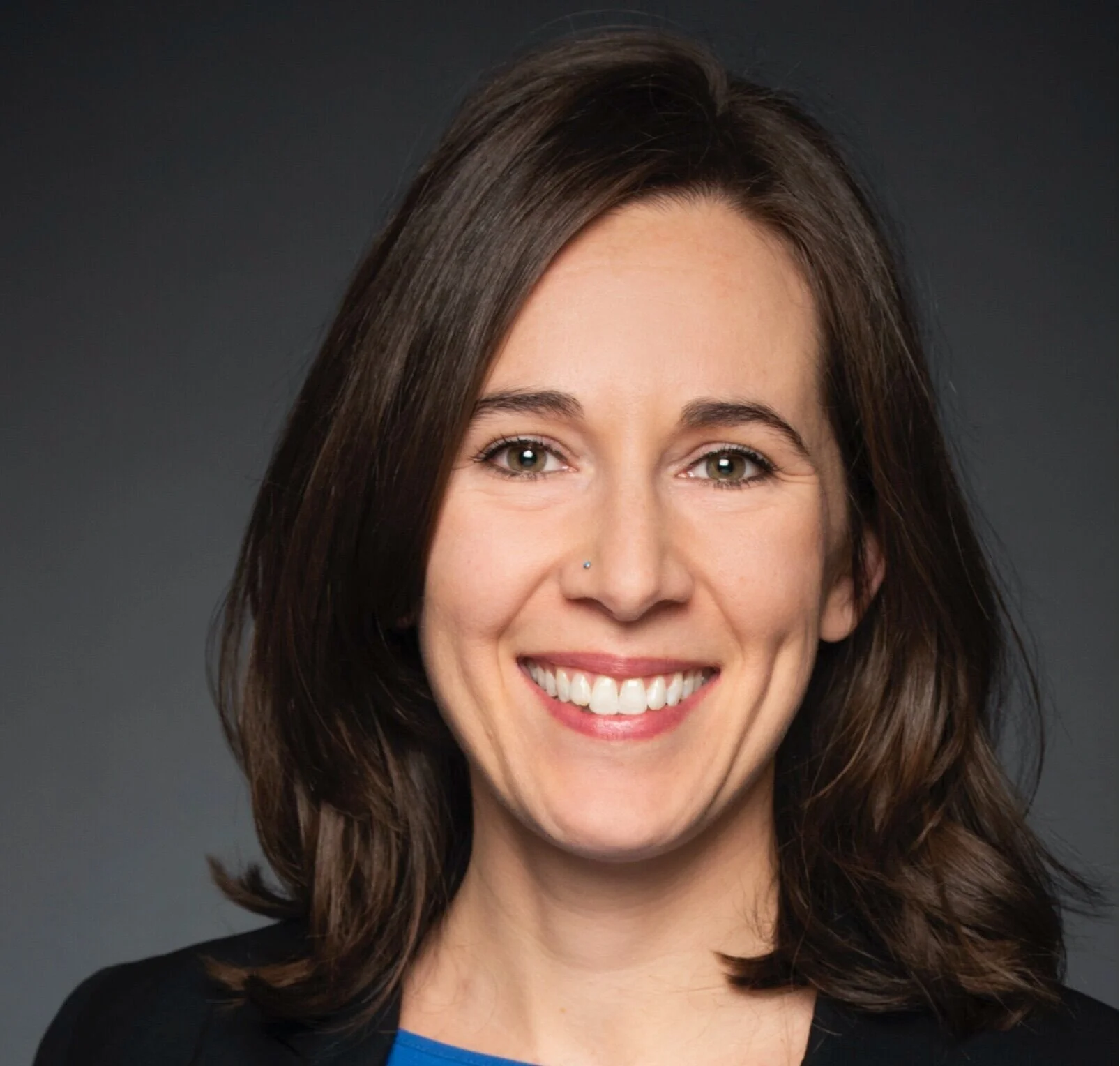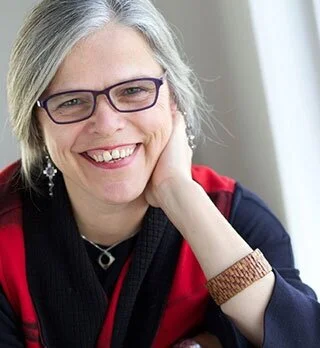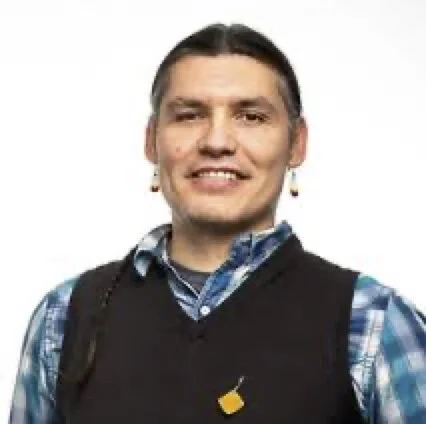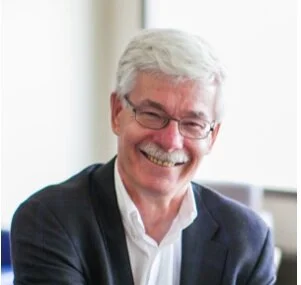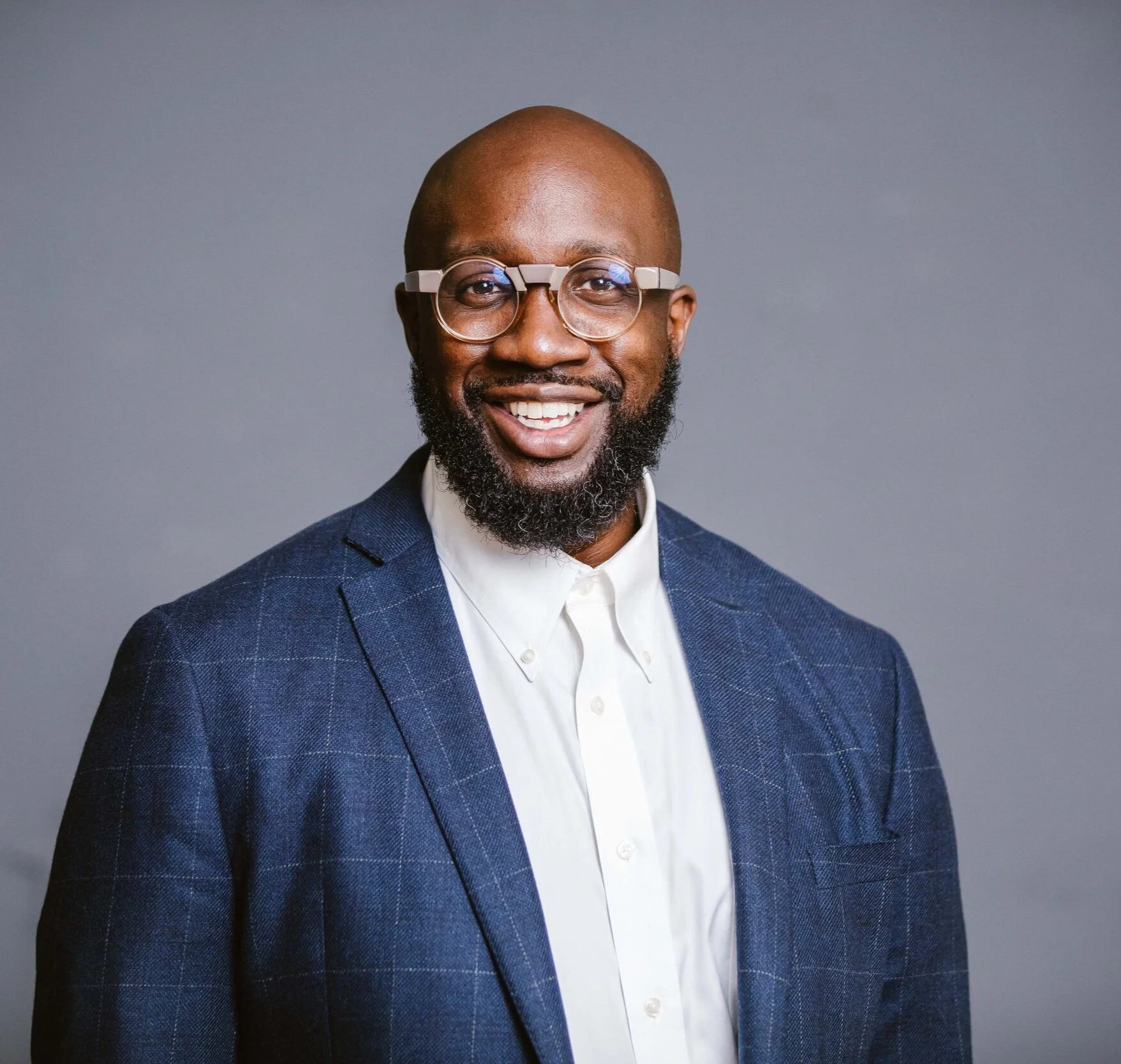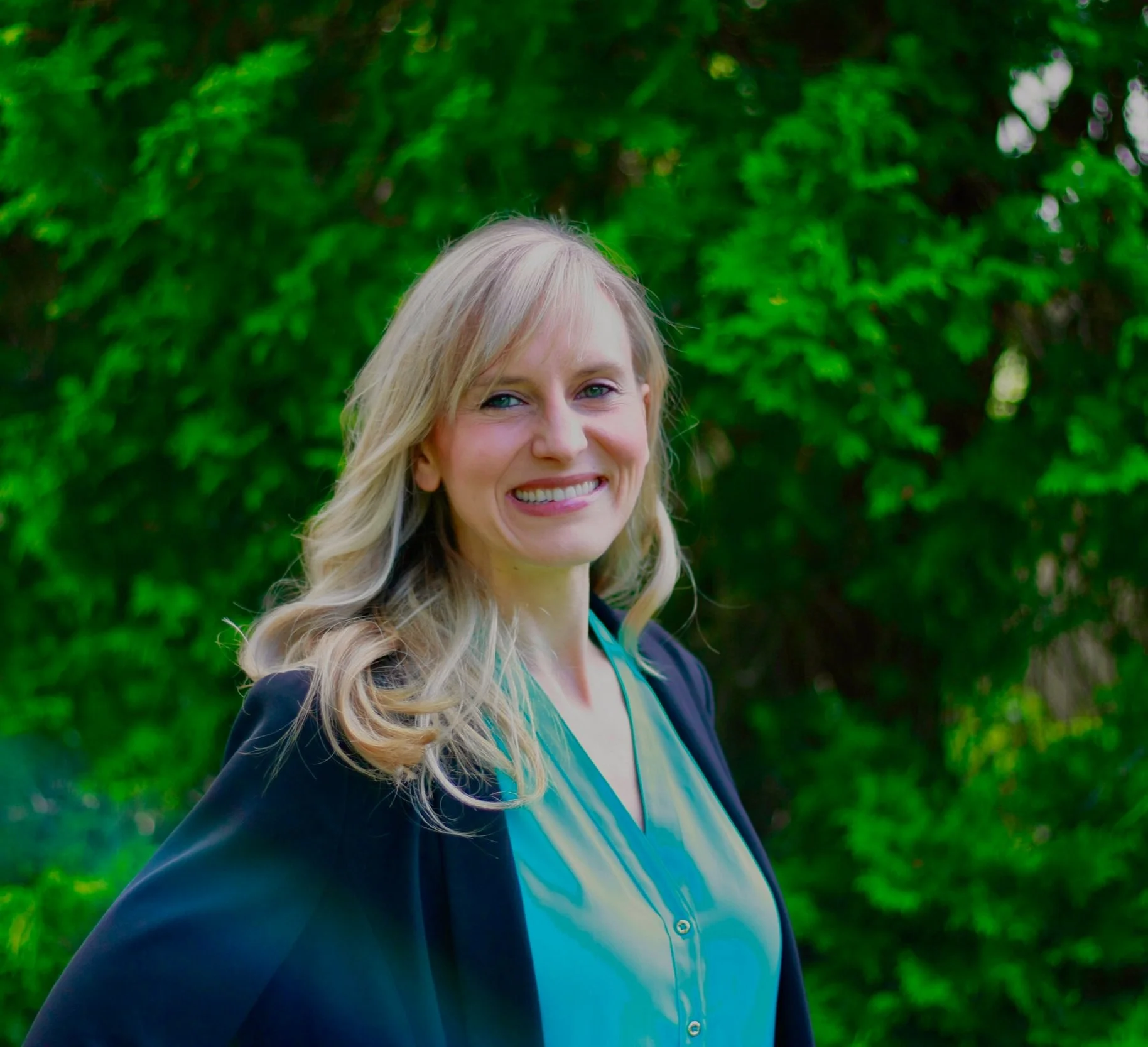Speakers
Hannah askew
Hannah Askew is the executive director of Sierra Club BC. She’s practiced public interest environmental law, and worked as a researcher on Anishinaabe and Coast Salish legal orders for the Indigenous Law Research Unit at the University of Victoria.
Sarah Berger Richardson
Sarah Berger Richardson is an Assistant Professor at the University of Ottawa’s Faculty of Law (Civil law section). She is a member of the Law Society of Ontario and President of the Canadian Association of Food Law and Policy. Her research focuses on the regulation of the agrifood sector, with a particular emphasis on the meat industry. She holds a Doctor of Civil Law from McGill University and her dissertation examined the ways that socio-cultural and moral perspectives about how livestock should be raised and slaughtered are considered in the design of meat inspection systems. In 2018-2019, she was a visiting fellow at the Schulich School of Law at Dalhousie University. She completed her Master of Law (LL.M) at Tel Aviv University, where she was a research fellow at the Manna Center in Food Safety and Security. Previously, she served as a law clerk at the Supreme Court of Israel and the Canada Agricultural Review Tribunal.
Don Buckingham
Raised on a farm in Saskatchewan, Don Buckingham then completed undergraduate studies in French literature, an advanced degree in development studies, and then bachelor, master and doctorate degrees in law focusing on trade, administrative regulation, agriculture, and food.
Don’s professional life has taken him across Canada and abroad. He has served as private practitioner, university professor, government advisor at the federal Department of Justice, and administrative judge as Chair of the Canadian Agricultural Review Tribunal, as President of the Council of Canadian Administrative Tribunals and as CEO of the Canadian Agri-Food Policy Institute. Now he is an Agriculture, Food and Regulatory Consultant in Ottawa doing work with various clients in the interface between law, agriculture, food and the environment.
His family inspires and sustains him. And as a “foodie” family, preparing and enjoying good meals together provide splendid opportunities to discuss the complexity of food, agriculture and all creation.
Marsha Cadogan
Dr. Marsha Simone Cadogan is an international intellectual property rights lawyer with expertise in trademarks, geographical indications (food and non-food based), design rights and copyright law and policy. Other aspects of her work include emerging technologies (artificial intelligence, blockchains and 3D printing automation) interface with intellectual property law, preferential free trade agreements and the direction of IP laws and, international law theories and sustainable development. She has a PhD in intellectual property rights and is called to the Bar of Ontario. She is also the Canadian representative on AIPPI's (International Association for the Protection of Intellectual Property Rights) Standing Committee on Geographical Indications.
Jennifer Clapp
Jennifer Clapp is a Canada Research Chair in Global Food Security and Sustainability and Professor in the School of Environment, Resources and Sustainability at the University of Waterloo. She has published widely on the global governance of problems that arise at the intersection of the global economy, food security and food systems, and the natural environment. Among her recent books are Food, 3rd Edition (Polity, 2020), Speculative Harvests: Financialization, Food, and Agriculture (with S. Ryan Isakson, Fernwood Press, 2018), and Hunger in the Balance: The New Politics of International Food Aid (Cornell University Press, 2012). Jennifer is a member of the Steering Committee of the High-Level Panel of Experts on Food Security and Nutrition of the UN Committee on World Food Security and a member of the International Panel of Experts on Sustainable Food Systems. She is currently researching corporate concentration in the agricultural input industry.
Deborah Curran
Deborah Curran is an Associate Professor at the University of Victoria in the Faculty of Law and School of Environmental Studies (Faculty of Social Sciences), and the Executive Director of the Environmental Law Centre where she works with students on environmental law projects for community organizations and First Nations across British Columbia. Deborah’s work is in the areas of land and water law, with a particular focus on environmental protection and collaborative management in water law, municipal sustainability, healthy foodscapes, and how Indigenous law is shaping colonial law. Deborah also teaches a national field course in Environmental Law and Sustainability from the Bamfield Marine Sciences Centre with the support of the Huu-ay-aht First Nation.
Jessica Cytryn
Jessica is an associate in McCarthy Tétrault LLP’s Business Group and Retail and Consumer Markets Group in Montreal. Drawing on over a decade of experience working in food, beverage, and hospitality, Jessica assists businesses operating in these sectors, among others, in connection with their regulatory and compliance obligations and commercial matters. Jessica holds a WSET Level 2 Award in Wine and Spirits and is the President of the Montreal Restaurant Workers Relief Fund. She organizes wine tastings in her spare time.
Angela D’Elia Decembrini
Representing Indigenous Peoples in negotiations with all levels of government, Angela’s practice focuses on advising clients on the Crown’s constitutional obligations to Indigenous Peoples. Angela also represents Indigenous clients in negotiations with the private sector to ensure that their Aboriginal title, rights and Treaty rights are respected and protected and that communities gain real benefits from any development taking place within their territories. Prior to joining First Peoples Law, Angela worked with the Haida Nation on their Aboriginal title negotiations, and acted as both In-house Legal Counsel and General Counsel for the Nisga’a Nation. Angela is based in Toronto and primarily works with clients in Ontario and the Maritimes on negotiation and governance files.
Ronald Doering
Ronald L Doering, BA, LLB, MA, LLD is Counsel in the Ottawa offices of GowlingWLG. After practising law in the private sector for several years, he joined the Federal Public Service where he held senior positions at Environment Canada, Agriculture Canada and the Privy Council Office. He had the lead responsibility to set up the Canadian Food Inspection Agency and then served as its President until 2002, when he retired from government to join GpwlingWLG as a partner. He has been the lead author of the popular Food Law column in Food in Canada since 2002. He is adjunct professor, Food Science, Carleton University, where he pioneered courses in food law.
Michael Fakhri
Mr. Fakhri is a professor at the University of Oregon School of Law where he teaches courses on human rights, food law, development, and commercial law. He is also the director of the Food Resiliency Project in the Environmental and Natural Resources Law Center. He holds a Doctorate from the University of Toronto, Masters from Harvard Law School, Bachelor of Laws from Queen’s University, and a Bachelor of Science in Ecology from Western University.
He has taught courses on the right to food at Harvard Law School, European University Institute, and the University of Arizona Indigenous Governance Program. He has delivered lectures on international human rights and development topics at universities in places such as South Africa, Egypt, Lebanon, Qatar, Singapore, Italy, Switzerland, Iceland, the United States, and the United Kingdom. He has also led public dialogues on human rights and development with peasant organizations, labor unions, and human rights activists in the Arab region and North America, and at international organizations such as the WTO Ministerial Conference.
During his practice as a lawyer, Mr. Fakhri fought for the rights of people who were indigent and incarcerated in a psychiatric institution. More recently, his book Bandung, Global History, and International Law (co-edited with Vasuki Nesiah and Luis Eslava) was cited by the International Court of Justice.
He was appointed Special Rapporteur on the Right to Food by the Human Rights Council in March 2020 and assumed his functions on 1 May 2020.
Brenda Gaertner
Brenda Gaertner is a partner at Mandell Pinder LLP, where she advises indigenous governments on aboriginal title and rights, modern (self) government, natural resource management and economic development. She received an LLB from Osgoode Hall Law School and was called in 1984. She has been with Mandell Pinder since 1986. Brenda is committed to the path of respect and reconciliation. She has assisted in various negotiated agreements and settlements, including on and off reserve projects and developments, modern self-governance and resource management, impact-benefit agreements, economic development, government to government agreements and specific claim settlements. In 2011, after decades of hard work and negotiations, Brenda assisted the St’at’imc Chiefs Council reach their historic agreement with BC Hydro and the Province of BC regarding the footprint and ongoing impacts of hydroelectric projects in their Territory. Brenda was senior counsel for the First Nations Coalition in the Cohen Inquiry on Fraser River Sockeye and has represented First Nation clients before the National Energy Board and Joint Federal and Provincial Review Panels. Throughout her career, Brenda has worked with Aboriginal people in their pursuit of the recognition of aboriginal title and rights to healthy fisheries and aquatic resources, helping to find ways to ensure that those fisheries and resources are sustained for present and future generations. She has a long history of working with First Nation communities along the migratory route of Fraser Salmon, including both the coastal and in-river fisheries, and throughout coastal BC. She cares about indigenous fisheries and the ecosystems upon which they rely, and is excited to be working with First Nations who are actively pursuing land and marine use plans within their territories. She was the lead negotiator for the Fraser Salmon Management Council, a First Nations organization working on behalf of 71 First Nations along the migratory route of Fraser Salmon, assisting to reach a collaborative management agreement with DFO, and has assisted Coastal Indigenous Nations in the negotiations of fisheries reconciliation agreements.
Patricia Galvao-Ferreira
Dr. Patrícia Galvão Ferreira is an Assistant Professor at the Faculty of Law, cross-appointed to the Great Lakes Institute for Environmental Research (GLIER), at the University of Windsor. She is the director of the Transnational Environmental Law and Policy Clinic. Prior to joining Windsor Law, Dr. Galvão Ferreira was a Postdoctoral Fellow at the Center for International Governance Innovation (CIGI), attending the UNFCCC negotiations leading up to and following the adoption of the Paris Climate Agreement. She has been a visiting scholar at the Center for Latin American Studies at Stanford University and at the FGV Law School in São Paulo. Dr. Galvão Ferreira holds an S.J.D. from the University of Toronto Faculty of Law, as well as an interdisciplinary doctoral degree in dynamics of global change from the Munk School of Global Affairs at the same University. She also holds an LL.M in international human rights law from the Notre Dame University Faculty of Law and an LL.B from the Federal University of Bahia in Brazil.
Rebeca Macias Gimenez
Rebeca recently defended her PhD research through the Faculty of Law at the University of Victoria, BC. She is a graduate alumna with the UVic Centre for Global Studies; completed an LL.M at the University of Calgary looking at public participation in watershed conservation in Brazil, and holds a bachelor in law from the Universidade Federal de Minas Gerais, Brazil. Her research focuses on land and water governance, environmental decision-making about energy infrastructure, intersected with aspects of social and environmental justice. With a community-centered focus, she addresses the adverse effects of infrastructure decision-making on Indigenous peoples’ ways of living and being on the land. She has specifically done research on the Amazon region of Brazil and the Peace Watershed, in BC, on the impacts of the Belo Monte and the Site C dam.
Kate Gunn
Kate Gunn is a lawyer at First Peoples Law Corporation in Vancouver, BC. She represents Indigenous groups across Canada on environmental and constitutional law issues. She also holds an LLM from the University of British Columbia, where her research focused on the interpretation of treaties between Indigenous Peoples and the Crown.
Alan Hanna
Alan is an assistant professor at the University of Victoria’s Faculty of Law. Alan teaches transsystemic contract law in the joint JID/JD Indigenous laws/common law program. He also teaches Indigenous Lands, Rights, and Governance, and Indigenous Legal Research Methods and Practice. Alan’s research interests include Indigenous laws and jurisdiction, governance, rights and title, environmental sustainability under Indigenous legal traditions, Aboriginal law and jurisprudence, and the many intersections of these disparate systems. Alan is of mixed Nitsiitapi (Blackfoot) and European ancestry, and is connected to the Northern Secwepemc people in the central interior of British Columbia.
Glenford Jameson
Glenford is a lawyer at G. S. Jameson & Company, where his practice is focused on corporate-commercial and administrative-regulatory law in the business context, where he advises organizations on structure, corporate governance, and regulatory compliance. Glenford leverages his significant legal experience in the food sector for entities ranging from start-ups to multinationals that encounter a high degree of regulation, or that seek to challenge regulatory regimes under which food is produced and sold in Canada. He is also adjunct faculty at Michigan State College of Law, where he teaches Canadian Food Law and Regulation.
Nadia Lambek
Nadia is an SJD candidate at theUniversity of Toronto, and a human rights lawyer, researcher and advocate focused on food system transitions and the rights of working people. Nadia is adjunct faculty at Vermont Law School where she teaches courses on global food security governance. In 2018, she worked with the Civil Society and Indigenous Peoples’ Mechanism to the UN Committee on World Food Security on a report monitoring realization of the right to food. She is an editor of Rethinking Food Systems: Structural Challenges, New Strategies and the Law (Springer 2014).
Selina Lee-Andersen
Selina Lee-Andersen practices environmental, regulatory and Aboriginal law at McCarthy Tétrault. Based in Vancouver, Selina’s practice spans a range of industries from renewable energy and infrastructure, to mining and manufacturing. Having worked in an advisory capacity in both the public and private sectors, Selina values being able to deliver practical legal and business advice to organizations. She regularly advises clients on food and product regulatory matters. Selina’s practice also specializes in climate change law, where she provides strategic advice to clients on matters relating to offset systems, emissions trading, climate change disclosure, compliance and clean technologies. She is widely published in the area of carbon transactions, and is ranked as a Leading Lawyer by Chambers Canada for Environmental Law.
Darcy Lindberg
Darcy Lindberg is mixed rooted Plains Cree, with his relations coming from Samson Cree Nation in Alberta and the Battleford-area in Saskatchewan. His past and current research focuses on Plains Cree law, ecological governance through Indigenous legal orders, gender and Indigenous ceremonies, and comparative approaches in Plains Cree and Canadian constitutionalism. As an Assistant Professor with the University of Alberta's Faculty of Law, he teaches courses on constitutional law, Indigenous legal traditions, treaties, and Indigenous environmental legal orders.
Catherine Mah
Lauren Martin
Lauren Martin is the Government and Food Industry Relations Manager for the Canadian Cattlemen’s Association where she contributes to the development of CCA’s food policy work and advocacy on behalf of Canadian beef cow farmers. Prior to joining CCA, Lauren has had similar advocacy and regulatory roles with the Canadian Seed Trade Association and the Canada Organic Trade Association. A lawyer by training, she practiced law for a few years before returning to agriculture which is her passion. She has worked in various food systems roles from the grassroots to international level.
Dawn Morrison
Dawn is of Secwepemc ancestry and is the Founder/Curator of the Working Group on Indigenous Food Sovereignty. Since 1983 Dawn has worked and studied horticulture, ethno-botany, adult education, and restoration of natural systems in formal institutions, as well as through her own healing and learning journey with Elders and traditional knowledge holders. Following the time spent teaching Aboriginal Adult Basic Education, Dawn has been dedicating her time and energy to land based healing and learning which led her to her life's work of realizing herself more fully as a developing spirit aligned leader in the Indigenous food sovereignty movement. Dawn has consistently organized and held the space over the last 16 years for mobilizing knowledge and networks that have been foundational for decolonizing food systems in community, regional and international networks where she has become internationally recognized as a published author on the topic. Dawn's work on the Decolonizing Research and Relationships is focused on creating a critical pathway of consciousness, that shines a light on the cross-cultural interface where Indigenous Food Sovereignty meets, social justice, climate change and regenerative food systems research, action and policy, planning and governance. Some of the projects Dawn is leading include: Wild Salmon Caravan, Indigenous Food and Freedom School and, Dismantling Structural Racism in the Food System, Mapping out and Advocating for the Establishment of Indigenous Foodland Conservation Areas, and the Tsilhqot’in National Government Food Security/Sovereignty Project.
Linda Nowlan
Linda Nowlan leads the UBC Sustainability Initiative as Senior Director. She has over twenty five years of experience in sustainability as a public interest environmental lawyer and NGO leader. Linda is an Adjunct Professor at the Allard School of Law and spent two years as a Faculty Research Associate with the UBC Program on Water Governance. She is a member of the Board of Trustees of the Canadian Museum of Nature and the IUCN Commission on Environmental Law, and previously served on Vancouver's Greenest City Action Team and the Boards of FarmFolk CityFolk, the Fraser Basin Council and Smart Growth BC. At West Coast Environmental Law, Linda served as Executive Director, Staff Lawyer, and Director of the Marine Program where she led a team to strengthen ocean protection through Canadian and Indigenous law. She also worked at WWF-Canada, the UK Foreign and Commonwealth Office, and a Vancouver litigation law firm. Her advocacy has contributed to many legal reforms, and her publications cover topics ranging from groundwater protection to marine spatial planning to extinction art.
Sherry Pictou
Dr. Sherry Pictou is a Mi’kmaw woman from L’sɨtkuk (water cuts through high rocks) known as Bear River First Nation, Nova Scotia. She is an Assistant Professor in the Faculties of Law and Management at Dalhousie University focusing on Indigenous Governance. Dr. Pictou is also a former Chief for her community and the former Co-Chair of the World Forum of Fisher Peoples. She is a member of the The Intergovernmental Science-Policy Platform on Biodiversity and Ecosystem Services (IPBES)Task Force on Indigenous and Local Knowledge. Her research interests include decolonizing treaty relations, Social Justice for Indigenous Women, Indigenous women’s role in food and lifeways, and Indigenous governance.
Peter Phillips
Dr. Phillips is Distinguished Professor of Policy and Founding Director of the Johnson-Shoyama Center for the Study of Science and Innovation Policy at the University of Saskatchewan. He earned his Ph.D. at the LSE and work for 13 years as an economist in industry and government. His research explores bioscience innovation policy related to global food security. He has held visiting appointments at the LSE, EUI, OECD, Chatham House and Universities of Edinburgh, Western Australia, and UTS Sydney. He has won major peer-reviewed grants worth >$250M, is author/editor of 17 books, >75 articles and >70 chapters and serves as an expert advisor for firms and governments around the world.
Melana Roberts
Melana Roberts is an award winning researcher, policy analyst and food justice advocate. Bringing an anti-racist, intersectional lens to federal and muinicipal policy, her work focuses on how to advance community driven solutions that democratize food systems governance, prioritize access and equity, and responds to environmental challenges. She is currently undertaking the creation of North America’s first municipal Black Food Sovereignty Plan at the City of Toronto. Melana has worked collaboratively with diverse food actors, volunteering on Boards, Councils, and in international fora. She serves as Canada's United Nations Civil Society Delegate for the Commission on Population and Development, and has provided expert advice on global emergency food responses during COVID-19. She is a member of Canada's first Canadian Food Policy Advisory Council, centring justice and equity in the implementation of a Food Policy for Canada, and has been a member of the Toronto Food Policy Council, and former Chair of the Toronto Youth Food Policy Council. She is also currently Chair of Food Secure Canada, a member of the Food Communities Network Leader's Table and a Director at Carrot Cache, a philanthropic foundation supporting food systems in Ontario. In 2020, Melana became an Action Canada Fellow, leading policy research to address barriers to entry for Indigenous, Black, immigrant, women and youth farmers, and was named a CBC Next 10 Leader, shaping the future of food in Canada. Prior to her work in Canada, Melana worked with Afro-descendant populations in Latin American and the Caribbean, supporting Territory and Culture rights claims and community-led health interventions.
Ione Smith
Ione is passionate about working to find solutions to challenging food system problems. She is a Professional Agrologist (PAg) with a background in community development, agricultural planning, and land resource science. Ione founded Upland Agricultural Consulting in 2010 and has built a career on developing innovative agriculture and food policies and plans. She has worked with Indigenous communities, governments of all levels, and non-governmental organizations to craft actionable recommendations and implement key strategies to improve and develop opportunities for agriculture and food security. In addition to her consulting work, Ione currently serves as Vice Chair of the Provincial Agricultural Land Commission and she teaches the Community Economic Development Approaches to Food course at Simon Fraser University. Ione received a MSc from the Institute for Resource Management, Environment, and Sustainability at UBC in 2004, where her thesis focused on the relationship between farming and water quality in the Fraser Valley. She received a BSc(Hons) in Environmental Sciences from the University of Guelph in 2001. Originally from Montreal, Ione has lived in BC for nearly 20 years. She currently resides on unceded shíshálh territory in Sechelt, BC.
Kathleen Sullivan
Kathleen Sullivan is CEO of Food and Beverage Canada – Aliments et boissons Canada, the national association representing Canada’s food and beverage manufacturers. Food and beverage manufacturing is one of Canada’s most important industries. Found in every province and region, this sector plays a critical role in contributing to Canada’s food sovereignty and economic well-being, and in supporting the country’s primary agriculture sector and international trade objectives. The industry is Canada’s largest manufacturing employer with almost 300,000 workers. Kathleen has over 20 years of experience in the agriculture and food sectors, as an industry-association executive, public affairs practitioner and agri-food trade policy specialist. She has a Bachelor of Commerce degree from Ottawa’s Carleton University and a Bachelor of Laws from Western University in London.
Andrew Stobo Sniderman
Andrew Stobo Sniderman is a graduate of the University of Toronto law school, Swarthmore College and Oxford University, where he was a Rhodes scholar. He was a law clerk to Edwin Cameron, a judge at South Africa’s Constitutional Court, and articled at Olthuis Kleer Townshend LLP, an Indigenous rights law firm in Toronto. He has also served as the human rights policy advisor to Canada’s Minister of Foreign Affairs.
Tasha Stansbury
Tasha Stansbury (she/her) is an LLM Candidate at the University of Ottawa, focusing her research on Canadian protections for climate migrants. She completed her J.D. at the University of Windsor (2020) and holds an Honours Bachelor of Arts in Equity Studies from the University of Toronto (2016), which focused largely on issues of food justice. Tasha has a strong background in grassroots activism work and is passionate about the role of communities in the global struggle for social justice. She will be rejoining the University of Ottawa Faculty of Law as a PhD student starting in September 2021, researching the right to culturally appropriate food in migrant communities.
Tammy Switucha
Tammy Switucha has been serving the Canadian public for 30 years in various federal-level departments and portfolios. She holds undergraduate and graduate degrees in social sciences from Carleton University and the University of Ottawa. Since joining the public service in 1990, she has held various positions in public policy in departments with mandates for socioeconomic, legal and public health issues.
She joined the Canadian Food Inspection Agency (CFIA) in 2007, a science-based regulatory agency with the mandate to safeguard Canadian food, animals and plants, which enhances the health and well-being of Canada's people, environment and economy. She has held several executive roles in the CFIA in domestic and international policy and program areas.In 2015, she led Canada’s largest regulatory modernization effort with the development of the Safe Food for Canadians Regulations. She is currently the Executive Director, Food Safety and Consumer Protection Directorate and oversees the program development for Canada’s food safety and consumer protection program.
Paul Taylor
Paul Taylor is the Executive Director of FoodShare Toronto and a lifelong anti-poverty activist. He also teaches at Simon Fraser University, is a regular political commentator on CTV and has written numerous op-eds and columns on various social issues. Growing up materially poor in Toronto, has inspired Paul to commit his life to doing what he can to dismantle the systems and harmful organizing principles that cause and uphold poverty, food insecurity and wealth inequality, including racism, white supremacy and neoliberalism. In 2020, Paul was named one of Canada’s Top 40 under 40, one of Toronto Life’s 50 Most Influential Torontonians and voted as Best Activist by Now Magazine readers.
Anelyse Weiler
Anelyse Weiler is an Assistant Professor of Sociology at the University of Victoria. Her research explores the convergence of social inequalities and environmental crises in the food system, with a focus on struggles for migrant justice and decent work across the food chain. Some of her research projects include a comparison of Canadian and U.S. temporary farm labour migration programs, the environmental and cultural politics of meat production, and the revival of craft cider livelihoods. She actively contributes to several organizations advocating for food security, dignified employment, and migrant rights, including the B.C. Employment Standards Coalition, Justice for Migrant Workers, and the Migrant Worker Health Expert Working Group. Her website is: https://anelyseweiler.com/.
Celia Mary White
Celia White (she/her) is a queer, second-generation settler from Vancouver Island, British Columbia. She is a mature student at Osgoode Hall Law School, who finished her undergrad in Anthropology and Globalization Studies in 2013 from Vancouver Island University. Since then, she has worked for organizations focusing on human rights, social justice, and food systems. She also loves non-school activities, such as exploring the wilderness, making cheese, canning everything, and sharing joy with community.
Terri-Lynn Williams Davidson
A citizen of, and General Counsel, to the Haida Nation, Terri-Lynn has practised in Indigenous- environmental law since in 1995. She holds two degrees: Bachelor of Laws, 1995; and Bachelor of Science (Computer Science), 1990. She is currently pursuing a Master of Laws.
Since 1995, she has represented the Haida Nation at all levels of court, including the Supreme Court of Canada in litigation to protect the old growth forests of Haida Gwaii, the Haida case which is the leading case on consultation and accommodation of Indigenous rights. She is also counsel for the Haida Nation’s aboriginal title case, as well as the related reconciliation negotiations—which have resulted in innovative agreements with British Columbia and Canada—as well as other litigation such as successfully challenging the Enbridge Northern Gateway Project, and injunctive relief for herring.
Terri-Lynn is an Honourary Director of Ecojustice, a member of the Law Society of British Columbia’s Truth and Reconciliation Committee’s Advisory Committee, and an Affiliated Research Scholar with Canada Climate Law Initiative. Her honours include the Peoples’ Choice Andrew Thompson Award for lifetime contributions to environmental protection and sustainability (2014), and a Courage in Law Award from the Indigenous Law Students Association at Allard Law School (2018). Her recognition includes Canadian Lawyer’s Top 25 Most Influential Lawyers in 2020 in the category of “Changemakers”, and in 2021 she ranked 21 on Maclean’s “Power List” recognizing 50 Canadians who are breaking ground in their field.
Terri-Lynn is also a multi-award-winning performer, and an artist, dancer and author. To find out more, please visit www.ravencallingproductions.ca.
Julia Witmer
Julia Witmer is entering her third year at the Schulich School of Law, Dalhousie University and completed her undergraduate in Life Sciences at Queen’s University. She is interested in the intersection between health, food, law and policy – especially as it relates to food access. Julia completed a food policy internship with the I Halifax Regional Municipality and conducted research for Associate Professor Jamie Baxter. This summer, she is working for the legal division of the Centre for Addiction and Mental Health (CAMH). In her free time, Julia enjoys practicing yoga, exploring Nova Scotia, crafting, cooking, and baking.
Stepan Wood
Stepan Wood (he/his) is the Canada Research Chair in Law, Society and Sustainability and the Director of the Centre for Law & the Environment at the Peter A. Allard School of Law, University of British Columbia. Stepan’s research relates to corporate social responsibility, sustainability, globalization, transnational governance, voluntary standards, climate change, and environmental law. He leads the interdisciplinary Transnational Business Governance Interactions (TBGI) project, an international research network that examines the drivers, dynamics, and impacts of competition, cooperation, coordination, and conflict among transnational initiatives to regulate global business. His co-authored book, A Perilous Imbalance: The Globalization of Canadian Law and Governance (UBC Press, 2010), was shortlisted for the Donald Smiley award for best book on Canadian politics. Professor Wood is founding co-chair of the Willms & Shier Environmental Law Moot, Vice-Chair of the Canadian national committee on environmental management systems standards, and a lead Canadian negotiator of the ISO 14001 and 14004 standards.


